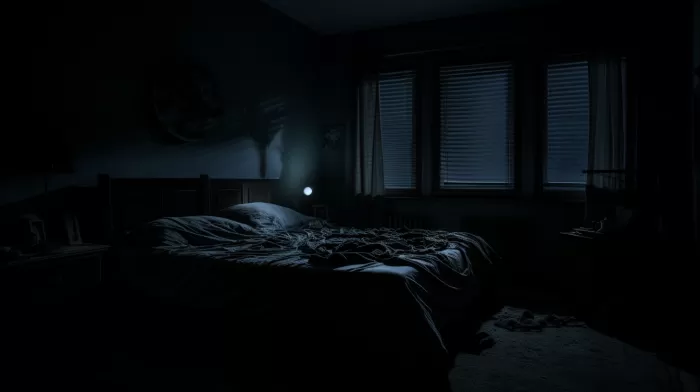Losing weight is a popular topic in today’s society, and while maintaining a healthy diet and engaging in regular exercise are key factors to maintaining a healthy weight, there is another crucial factor that people often overlook: sleeping in a pitch-black environment.
The impact of endless light
We live in a world filled with light. Whether it’s from streetlights, electronic devices, or household appliances, we are constantly exposed to artificial light sources. However, this constant exposure to light can interfere with our bodies’ natural rhythms, which are designed to function under the Earth’s natural day-night cycle.
Research suggests that exposure to excessive artificial light not only increases the risk of cancer but may also contribute to weight gain on a larger scale.
Light pollution and global weight gain
David B. Allison, Ph.D., a researcher from the University of Alabama at Birmingham, believes that light pollution may be responsible for weight gain in both humans and animals. According to Allison, the increase in richer foods and decreased physical activity does not entirely explain the rising obesity rates in people and animals.
In a paper co-authored by Allison and published in the British journal Proceedings of the Royal Society B, the authors note that studies have demonstrated subtle changes in the amount of time spent in light or dark environments can affect eating habits. Therefore, it is possible that the increased light pollution resulting from industrialization is causing mammals, including humans, to gain weight.
Negative effects of excessive light exposure
Too much light exposure at night not only potentially contributes to weight gain but also inhibits the release of melatonin, a hormone responsible for regulating sleep-wake cycles. Melatonin has also been shown to lower blood pressure and body temperature and is being considered as a potential treatment for insomnia, hypertension, and cancer.
A study from Brigham and Women’s Hospital and Harvard Medical School demonstrates that exposure to light at night significantly restricts melatonin production. Joshua Gooley, Ph.D., one of the study’s researchers, reveals that indoor light exposure has a strong suppressive effect on melatonin, which could in turn affect sleep quality, body temperature regulation, blood pressure, and glucose levels.
Gooley also mentions that chronic melatonin suppression has been theorized to increase the relative risk of certain cancers, and melatonin receptor genes have been linked to type 2 diabetes. This suggests that shift workers who are exposed to light at night for long durations are at substantial health risk. Further research is needed to confirm these hypotheses and examine the possible mechanisms behind them.
Tips for sleeping in darkness
To create a dark sleeping environment, you can use thick blackout drapes over your windows and unplug any electronic devices that emit light, such as alarm clocks, televisions, and computers. Using battery-powered alarm clocks without light displays can also help minimize light exposure. Keep a flashlight or portable lamp nearby in case you need to navigate your room at night.
Establishing a consistent sleep schedule and going to bed at the same time every night can also aid in improving sleep quality. Participating in calming activities, such as playing a musical instrument or meditating, can help prepare you for a restful night’s sleep.
The impact of sleeping in darkness on weight loss may be difficult to quantify, but improving your sleep quality can lead to feeling more refreshed and energized in the morning. Ultimately, prioritizing your sleep health and incorporating darkness into your bedtime routine can play a significant role in maintaining a healthy weight and promoting overall well-being.



